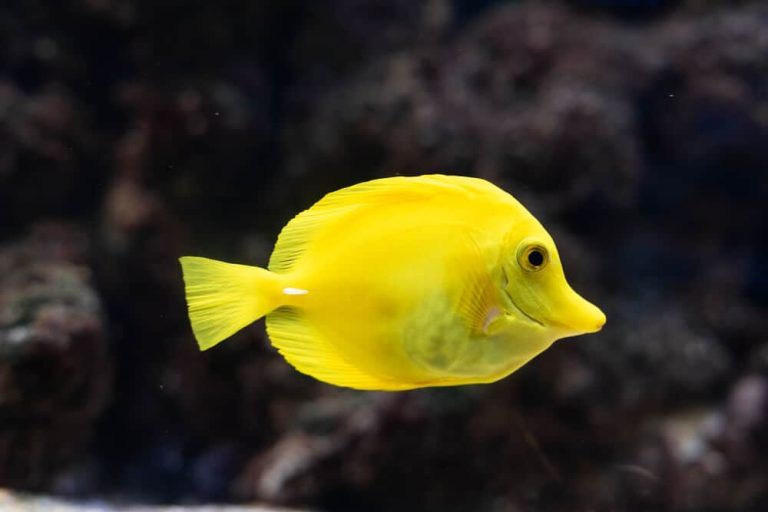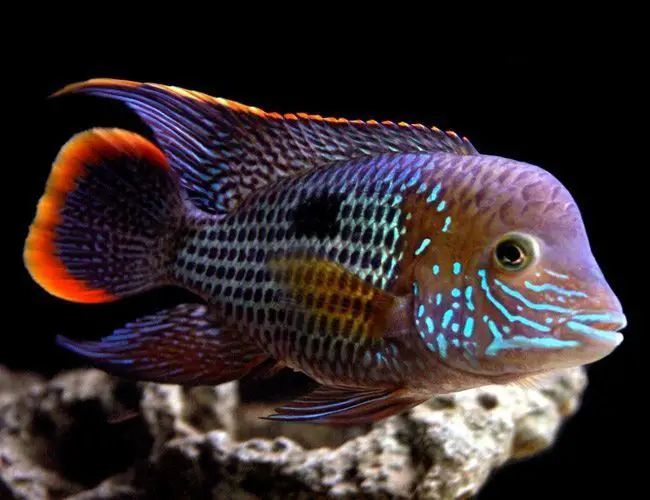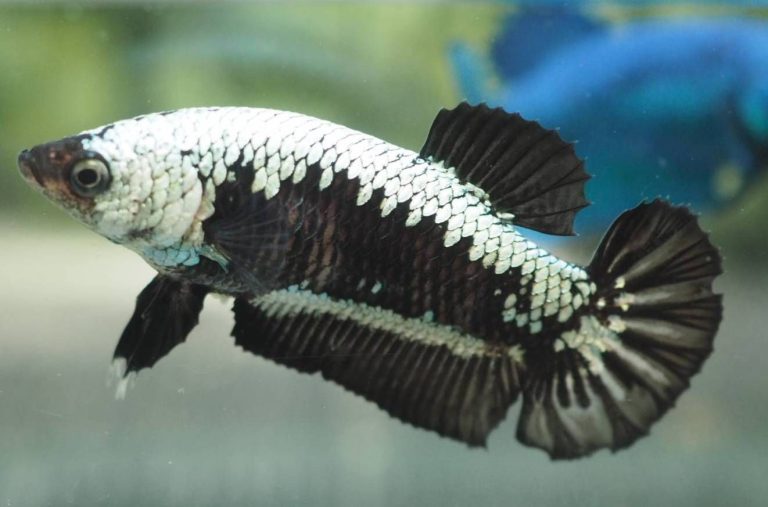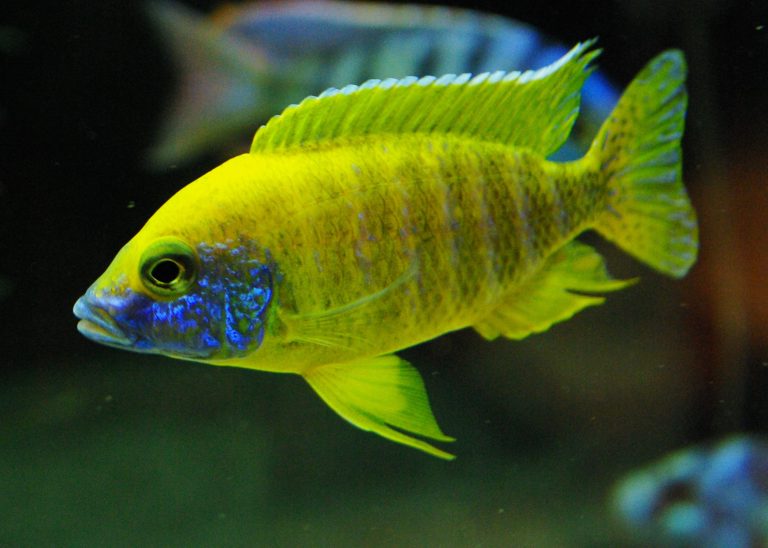How to Revive a Lethargic Betta Fish: A Complete Guide
To treat a lethargic betta fish, the water quality must be checked and improved if necessary, the tank should be cleaned, and the fish should be fed a varied and nutritious diet. A lethargic betta fish is a common issue that betta keepers face.
If you have noticed that your betta fish is not moving as much as it used to, or seems to be laying at the bottom of the tank, it may be lethargic. There are several potential causes of lethargy in betta fish, including poor water quality, a dirty tank, and a lack of proper nutrition.
In this article, we will discuss how to identify and treat a lethargic betta fish, including checking and improving water quality, cleaning the tank, and feeding a varied and nutritious diet. Proper treatment will ensure that your betta fish is healthy, happy, and active.

Credit: www.bettacarefishguide.com
Overview Of Betta Fish Health
Understanding Betta Fish Health
Betta fish, also known as siamese fighting fish, are one of the most popular aquarium fish worldwide. They can live up to five years in a healthy environment, but it is crucial to maintain their health to ensure they live a happy and comfortable life.
Understanding the basics of betta fish health is the first step towards achieving this. Here are some key things to consider:
- Water quality: Betta fish are sensitive to the water quality in their aquarium. Poor water quality can cause several health problems, including stress, infections, and fin rot.
- Balanced diet: Providing your betta fish with a varied and balanced diet is essential for their overall health. Betta fish require high-quality protein-rich food, such as brine shrimp, bloodworms, and pellets, to thrive.
- Tank size: The bigger the tank, the better it is for betta fish. A smaller tank can lead to poor water quality, inadequate space, and health problems.
- Ideal water temperature: Betta fish need warm water to survive, and the recommended temperature range for them is between 75-82°f. Sudden temperature fluctuations can be stressful for the fish, leading to health issues.
Common Betta Fish Health Problems
Despite the best care, betta fish can still develop health issues. Here are some of the common health problems to watch out for:
- Fin rot: A bacterial infection that causes the fins to disintegrate and fall off, resulting in a ragged appearance.
- Swim bladder disorder: A condition where the betta fish has difficulty controlling its buoyancy and may float or sink to the bottom of the tank.
- Fungal infection: The fish can develop fungal infections on their body or fins, which need to be treated immediately.
- Parasitic infection: Parasites can cause several health issues in betta fish, including white spots, itching, and lethargy.
- Lethargy: Lethargy is a symptom that can indicate several illnesses or poor water quality.
How To Identify A Lethargic Betta Fish
Lethargy is a common symptom of betta fish, indicating an underlying health issue. Here are some signs to watch out for:
- Slow-swimming: A healthy betta fish should be active and swim around actively.
- Lack of appetite: Betta fish are known to have a healthy appetite and will take food from their owner’s hand. If the fish has lost its appetite, it could indicate health problems.
- Clamped fins: Betta fish have flowing fins; if the fins are clamped together, it could indicate stress or illness.
- No interest in the surroundings: A healthy betta fish is interested in its environment and will explore its enclosure. Lethargic betta fish tend to have no interest in the surroundings.
Understanding the basic requirements of betta fish health is essential to keep them healthy and happy. Common betta fish health problems include fin rot, swim bladder disorder, fungal infection, parasites, and lethargy. Identifying the symptoms of lethargy in betta fish can help in identifying and treating underlying health issues promptly.
Diagnosing The Problem
Why Is Your Betta Fish Lethargic?
If your betta fish is sluggish and appears to lack energy, it may be a sign that they are not feeling well. Lethargy is often a clinical symptom of an underlying health issue. Here’s what could be causing your pet’s lethargy:
Inspecting Water Quality & Temperature
Poor water quality can be a primary factor behind your betta fish’s lethargy. It’s essential to monitor your aquarium’s water conditions and ensure it is conducive to your fish’s survival. Some points to check include:
- Is the water temperature between 76°f to 80°f?
- Is the ph level between 6.5 and 7.5?
- Is the water clean, and have you removed any uneaten food and debris?
If the aquarium’s water conditions do not meet the preferred range, it’s essential to take immediate steps to improve it.
Checking Water Ph Levels
Keeping the ph levels regular is vital for your betta fish’s growth and wellness. If the ph level in your aquarium fluctuates, it can lead to lethargy in your fish. Some ways to maintain water’s ph levels include:
- Test your fish tank’s water weekly using ph strips or a digital meter.
- Adjust the ph levels as needed, slowly, and gradually.
- Avoid overcrowding your aquarium, which can result in an abnormal ph level.
Identifying Parasites And Diseases
Betta fish are susceptible to different diseases, and lethargy is often a symptom. Some illnesses may require prompt medical attention. Here are some symptoms to look out for:
- White spots on the body
- Torn fins
- Visible parasites on the fish’s body
- Discoloration or unusual bulging of the eye
If you observe any such symptoms in your betta fish, take them to a veterinarian and diagnose the underlying issue.
Conducting Physical Examination
Physical examination is essential for distinguishing physical health problems. Here are ways to perform a physical evaluation of your betta fish:
- Evaluate the fish’s appearance from a distance.
- Check for any physical abnormalities such as fish’s color, fins, or eyes.
- Observe the fish’s behavior- swimming activity, breathing capacity, and food consumption.
A comprehensive physical assessment can help diagnose health problems and give the betta fish the right medication.
Lethargy in betta fish is a concern that should not be ignored. Early diagnosis and treatment of the underlying problem can improve the fish’s quality of life. By monitoring the water quality and temperature, checking ph levels, identifying parasites and diseases, and conducting physical evaluations, you can ensure your pet’s wellbeing.
Steps To Revive A Lethargic Betta Fish
Is your betta fish lethargic or not moving? It can be distressing to see your pet in this condition, but don’t worry! With timely intervention, you can revive your betta fish’s health. Here are some steps to follow:
Assessing The Severity Of Illness
Before treating a lethargic betta fish, you need to assess the severity of the illness. Keep an eye on the following symptoms:
- Loss of appetite
- Lethargy
- Difficulty swimming
- Gasping at the water surface
- Clamped fins
How To Isolate Your Betta Fish
Isolating your betta fish can prevent the spread of disease and stress. Follow these steps:
- Prepare an isolation tank with clean and conditioned water.
- Use a fishnet to carefully scoop out your betta fish from its current tank.
- Gently transfer the fish to the isolation tank.
- Monitor your fish’s condition and behavior.
Treating Betta Fish Respiratory Problems
Betta fish, like other fish, are susceptible to respiratory infections. The following remedies can help:
- Increase aeration with an air pump or filter.
- Lower the water level to reduce stress on the fish.
- Use aquarium salt in the tank.
- Add medications such as bettafix or melafix to the water.
Reducing Or Eliminating Water Contaminants
Poor water conditions can lead to illness in betta fish. Take the following steps to reduce or eliminate water contaminants:
- Use a water conditioner to neutralize harmful chemicals such as chlorine.
- Test the water regularly for ph and ammonia levels.
- Change the water weekly, replacing around 25-50% of the water each time.
Medications Available For Betta Fish Health
If home remedies do not improve your betta fish’s condition, you may need to use medication. Here are some medications available for betta fish health:
- Bettafix and melafix – helps treat bacterial/fungal infections and burns.
- Methylene blue – prevents and treats fungal infections.
- Aquarium salt – relieves stress and helps with fin rot.
Reviving a lethargic betta fish requires prompt attention and care. Following the steps mentioned above can help ensure your pet’s speedy recovery and prevent further complications. Remember to always consult an experienced veterinarian when in doubt or if the fish’s condition worsens.
Preventing Betta Fish Health Problems
How To Prevent Betta Fish Health Issues
In order to keep your betta fish healthy and happy, it’s important to understand how to prevent common health issues. By following these best practices, you can ensure that your betta fish remains healthy and vibrant.
Best Practices For Betta Fish Care
- Feed your betta fish a balanced diet: Betta fish need a varied diet that includes protein-rich foods, such as brine shrimp, bloodworms, and daphnia. Avoid overfeeding your betta, as obesity is a common health issue in these fish.
- Maintain a suitable water temperature: Betta fish need to be kept in warm water, ideally between 78 and 82 degrees fahrenheit, in order to thrive.
- Keep the water clean: Betta fish produce a lot of waste, so it’s important to perform regular water changes to keep the water clean and healthy.
- Provide plenty of stimulation: Betta fish are active creatures and need plenty of stimulation to stay healthy. Consider adding plants, rocks, or other décor to the tank to provide a stimulating environment for your fish.
Maintaining Water Quality
- Perform regular water changes: Betta fish are sensitive to changes in water quality, so it’s important to perform regular water changes to keep the water clean and healthy.
- Use a water conditioner: Tap water can contain chlorine and other chemicals that can harm betta fish. Use a water conditioner to remove these harmful chemicals before adding water to the tank.
- Monitor water parameters: Use a water testing kit to monitor the levels of ammonia, nitrite, and nitrate in the water. High levels of these substances can be harmful to betta fish.
Expanding Betta Fish Habitats
- Provide plenty of space: Betta fish need plenty of space to swim and explore. Consider providing a larger tank or adding a tank divider to give your fish more room to swim.
- Add plants and décor: Adding plants and décor to the tank not only provides stimulation for your fish but also helps to maintain water quality by providing a natural filtration system.
- Consider a community tank: Bettas can be notoriously aggressive towards other fish, but with careful selection and proper acclimation, they can be kept in a community tank with other peaceful fish. Research carefully before choosing tankmates for your betta.
Frequently Asked Questions
Top Questions About Betta Fish Health
Betta fish are among the most popular pets around the world. Despite their popularity, there’s always some confusion about their health and wellbeing. Here are some of the top questions about betta fish health that every pet owner should know.
How Often Should You Feed A Betta Fish?
One of the most common questions about caring for a betta fish is how often they should be fed. Overfeeding can be dangerous to their health, while underfeeding can lead to malnutrition. Here are some essential points on how often to feed your betta fish:
- Feed adult betta fish once or twice daily
- Baby betta fish should be fed three or four times daily
- Betta fish should not eat more than what they can consume within two minutes
- They should not be fed for at least a full day once a week
What Are The Ideal Water Conditions For Betta Fish?
Maintaining healthy water conditions is crucial for the survival of betta fish. Here are some essential points to keep in mind when creating a healthy environment for your betta fish:
- A suitable temperature for betta fish is around 78°f to 82°f (25-28°c)
- The ph level of the water should range between 6.5 to 7.5
- Betta fish prefer slightly soft water (dh 2°-6°)
- Providing a good water filter is essential for keeping the water healthy and clean.
How Often Should You Clean A Betta Fish Tank?
While betta fish are generally low-maintenance pets, it’s essential to clean their tanks regularly. Cleaning their tanks help remove harmful toxins and bacteria that can cause infections or diseases. Here are some key points to keep in mind for cleaning your betta fish’s tank:
- For an unfiltered aquarium, change 30% of the water each week
- For a filtered aquarium, change 10% to 15% of the water each week
- Cleaning should be done with only warm water since soap and detergents are toxic to fish
- The substrate (such as sand or gravel) and any decorations should be cleaned once every few months.
Keeping your betta fish happy and healthy is easy once you understand their needs. These answers to frequently asked questions about betta fish health provide fundamental information that every betta fish owner should keep in mind.
Frequently Asked Questions On How To Treat A Lethargic Betta Fish
What Are The Signs Of A Lethargic Betta Fish?
Lethargic betta fish may refuse to eat, rest on the bottom of the tank, or have clamped fins.
What Might Be Causing My Betta Fish To Be Lethargic?
Several things can cause lethargic betta fish, such as poor water quality, stress, or illness.
How Can I Improve Water Quality For My Betta Fish?
Regular water changes, proper filtration, and maintaining the right temperature can improve water quality.
What Are Some Treatments For A Lethargic Betta Fish?
Treatments for a lethargic betta fish may include raising the water temperature, adding aquarium salt, or administering medication.
Conclusion
A lethargic betta fish can be a worrisome sight for any fish owner. However, with proper care and attention, you can help your betta fish return to its full and energetic self. Treating the root cause, providing a clean environment, and feeding a balanced and nutritious diet can all help prevent lethargy in betta fish.
If your betta fish is already showing signs of lethargy, practicing regular water changes, monitoring water parameters, and using medication when necessary can all aid in its recovery. Remember to always consult with a veterinarian or experienced fish hobbyist if you are unsure about any potential treatments for your betta fish.
By providing the right care and attention, your betta fish can live a long, healthy, and happy life.






